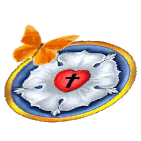|
Advanced study in the Lutheran
faith is often broken into four categories.
Exegetical theology - A focus on a
study of the Holy Scriptures in their original languages.
The Lutheran Church - Missouri Synod uses what is called the
"historical - grammatical" method. Scripture is
interpreted using the original languages with an understanding
formed by the best possible comprehension of their original
settings and purposes. Scripture is treated and respected
as the Divine Word of revelation from God Himself. This
method is in contrast to the various methods of "higher
criticism" which operate with the presupposition that the Bible
is a human book about God and therefore prone to human error.
The area of hermeneutics, or the science of interpretation,
falls into this area.
Systematic theology -this is a
study of theology based on a topical approach where the various
components found in Scripture are related to one another into a
system. Studies and statements can then be made about the
implications of various dimensions of Scriptural teaching for a
better understanding. Systematic theology seeks to bring
the various pieces of Scriptural teaching together and to state
the meaning of Scripture in a plain and easy to understand way
on various issues.
Historical theology - seeks to
gain a true understanding of how various Scriptural teachings
were understood at particular times and why. Such provides
necessary insight into the sources of human biases and mistaken
interpretations so that the contemporary interpreter can avoid
the same mistakes but rather remain faithful to God's intended
meaning for the Scriptures.
Practical theology - deals with
the application of Scriptural truth to the lives of individuals.
Pastoral care, counseling, worship practice, various approaches
to different ministries are only some of the many examples of
topics that can fall under this category.
|
